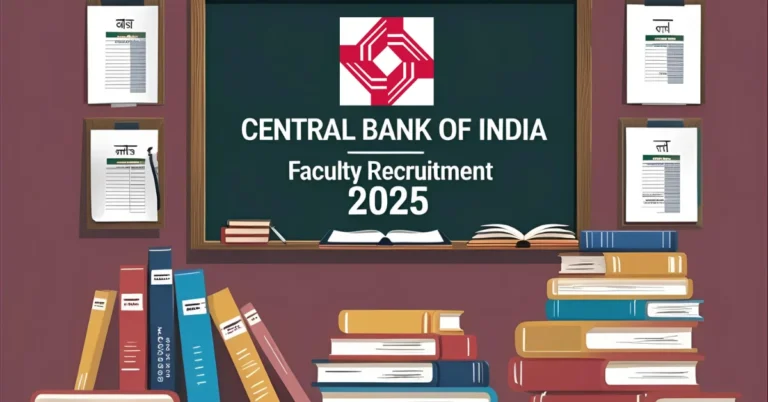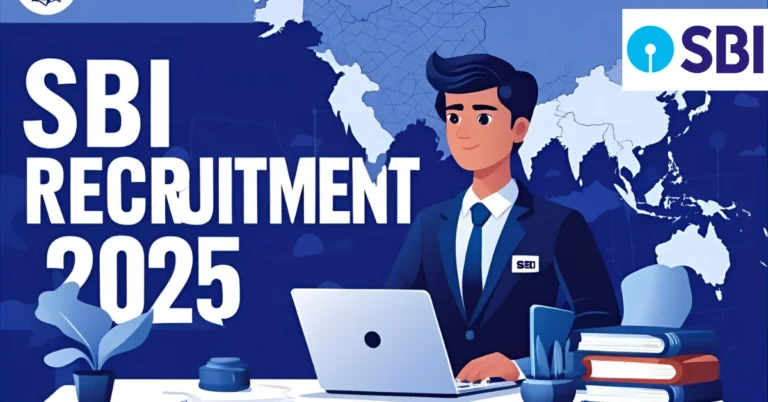Discover how to become a manager in RBI with our comprehensive guide! Learn about the qualifications needed, the RBI Grade B examination, salary expectations, and career prospects. Start your journey toward a rewarding career at India’s Central Bank today!
The Reserve Bank of India (RBI) is the central bank of India and is very important for the country’s economy, like the backbone that keeps everything steady and strong. Managers at RBI have a special job—they help make decisions that can affect everyone in the country. In this article, we’ll explore how to become a manager in RBI, what qualifications you need, how much you can earn, and what the selection process looks like.
Understanding the Role of a Manager at RBI
Overview of Responsibilities
Managers at RBI have a lot of important tasks. They help create financial policies, which are rules and guidelines that banks must follow to keep the country’s economy stable. They also supervise teams of people to ensure that everything runs smoothly. Their work helps keep the Indian economy healthy and secure.
Work Environment
Working at RBI is professional and respectful. You will be part of a team where everyone contributes to big decisions that help the nation. It’s a great opportunity to be involved in something that really matters.
Qualifications Required
Educational Qualifications
To become a manager in RBI, you need to have a bachelor’s degree. Many successful candidates pursue a Master’s degree in finance, economics, or business management to boost their chances.
Age Criteria
There is usually an age limit for applying, which is generally between 21 and 30 years. This is to ensure that candidates are entering the workforce with the right amount of youthful energy and fresh ideas.
Skills and Experience
As a manager, you should have strong problem-solving skills and be a good leader. It also helps if you have some experience in banking or finance, but it is not always necessary.
Salary and Benefits
Earning Potential
If you become a manager at RBI, you can expect to earn a decent salary. On average, managers earn between ₹70,000 to ₹1,00,000 per month. This salary is quite competitive compared to many other government jobs.
Additional Benefits
Besides a good salary, RBI employees receive benefits like health insurance, housing allowances, and more vacation days. This helps ensure a good work-life balance, which is very important for everyone’s happiness.
Recruitment Process

Frequency of Notifications for Hiring
RBI announces job openings for managers at least once a year. Sometimes, they may have more frequent job openings depending on their needs.
Selection Process Overview
To get hired as a manager, you usually have to go through a few steps. First, you’ll take a preliminary exam to see if you qualify. Next, if you pass, you’ll take the main exam and then have an interview. It’s important to prepare well for each stage.
Exams for Managerial Positions
Yes, to become a manager, you must take the RBI Grade B examination. This exam tests your knowledge and skills in various subjects that are important for the job.
RBI Grade B Examination
Overview of the Exam Structure
The Grade B exam has two parts:
- A preliminary exam to test your basic knowledge.
- A main exam where you are asked more detailed questions.
RBI Grade B Syllabus
Here are the main topics you need to study for the exam:
- Economic and Social Issues: Understanding the country’s economy and related social matters.
- Finance and Management: Basics of finance, banking, and management techniques.
- Quantitative Aptitude: Math skills, like solving problems with numbers.
- Reasoning Ability: Logical thinking and problem-solving.
Preparation Tips
Here are some tips to help you prepare for the exam:
- Use study books and online resources to get a good understanding of the topics.
- Practice with previous years’ exam papers to familiarize yourself with the type of questions asked.
- Taking mock tests can help you manage your time effectively during the actual exam.
Career Growth and Opportunities

Pathways for Advancement
Once you become a manager in RBI, there are many opportunities for growth. You can move up to higher positions, like Deputy General Manager or even General Manager. The career path is promising for those who work hard and show dedication.
Skill Development
Continuous learning is essential. You can always find new courses in finance or management that can help you grow in your job. This way, you can take on more responsibilities and advance your career.
Career Prospects for an RBI Manager
Job Stability
Jobs at RBI are very stable and secure. Many people like this aspect because it provides comfort and assurance for their future.
Reputation
Working at RBI is a prestigious position. It boosts your profile, and many employers recognize it as one of the top employers in India.
Networking Opportunities
As a manager, you will meet with other financial experts. This helps you build valuable connections in the industry that can further your career.
Comparing a Manager in RBI vs. a Manager in PSU Bank
Salary Comparison
Managers in Public Sector Undertaking (PSU) banks earn a little less than RBI managers. While RBI managers earn between ₹70,000 to ₹1,00,000, PSU bank managers typically earn around ₹60,000 to ₹80,000 per month.
Job Role Differences
The roles of managers in RBI and PSU banks are different. RBI managers work on national economic policies, while PSU bank managers focus more on retail banking and loans.
Work Environment
Working at RBI is often seen as more prestigious, while PSU banks focus mainly on everyday banking operations. Both roles come with good benefits, but RBI managers usually have better opportunities for professional growth.
Conclusion

Becoming a manager at RBI can be a rewarding career choice with a good salary and job security. You need the right qualifications and should be prepared to take some exams. You can achieve your goal and make a real difference in India’s economy with hard work and dedication.
If you have any questions about how to become a manager in RBI, feel free to ask! Share your thoughts or experiences in the comments below. Don’t forget to subscribe for more career guidance!



